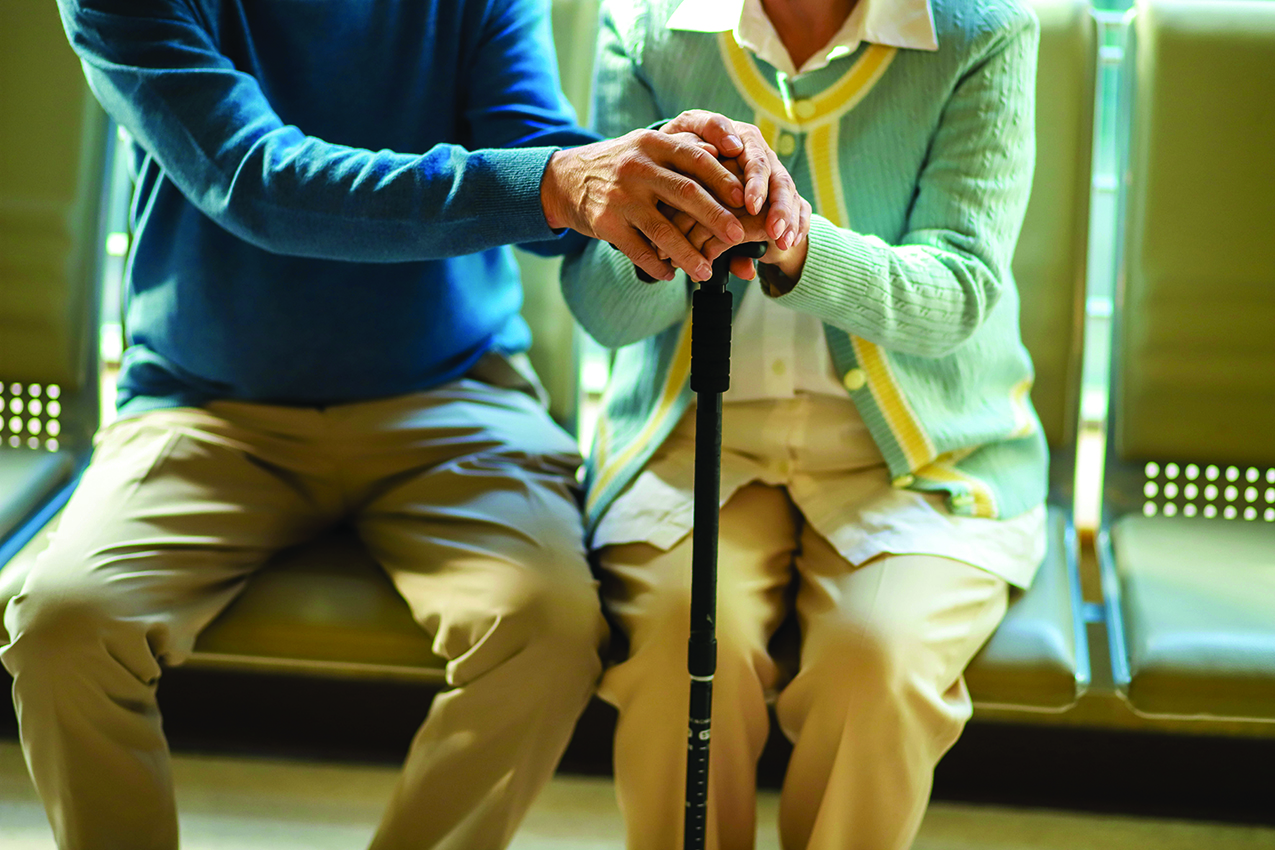Parkinson's Disease Care Partner Symposium Offers Advice in Southampton

Stony Brook Southampton Hospital’s Center for Parkinson’s Disease is hosting a Care Partner Symposium dubbed “A Day to Connect, Learn and Recharge” at Stony Brook Southampton on Nov. 8.
Hosting the event are the center and Stony Brook’s School of Health Professions, cosponsoring it is the American Parkinson’s Disease Association, and Southampton-based d non-medical companion care agency Artful Home Care is partnering with the organizers.
“We believe that the gold standard in home care is not simply meeting physical needs, but nurturing the whole person — their spirit, their interests, their sense of purpose,” said Beth McNeill-Muhs, the owner of Artful Home Care. “Partnering with the Center for Parkinson’s Disease Care Partner Symposium allows us to bring that philosophy into the Parkinson’s care conversation with a focus on dignity, creativity, and community.”
An estimated 1 million people in the U.S. live with the chronic, progressive neurological disorder that affects movement, balance, and coordination, with about 90,000 more diagnosed annually. Its cause is unknown and researchers have yet to find a cure for the disease, which predominantly affects men around age 60.
The free one-day symposium for care partners of people living with the disease will include educational lectures from Parkinson’s experts, relaxing services to support your well-being, as well as opportunities to connect, share and reset. The event will be catered with a light breakfast and lunch. It also includes in-home caregiver assistance, if needed.Artful Home Care, which offers hourly and live-in home care solutions, has a “whole-life” approach that integrates art, music, and wellness into the daily lives of clients across Long Island. The agency’s motto — “Not just a home care agency, a way of life” — reflects its focus on providing an environment that is both physically safe and intellectually stimulating. Its carefully screened, highly dedicated caregivers provide real-time care monitoring and custom-tailored care plans that reflect each client’s lifestyle, interests, and goals.
The agency hopes that its collaboration with the symposium will bring greater awareness and practical strategies to help clients remain comfortably and vibrantly in their homes — consistent with East End many clients’ preference for aging in place.
The Stony Brook Southampton Hospital’s Center for Parkinson’s Disease Care Partner Symposium is scheduled for 9:30 a.m. to 3 p.m. on Nov. 8 at Chancellors Hall on the Stony Brook Southampton campus. Admission is free but registration is required here. Contact Ragan Ingram for more information at 631-726-8600.

Signs and Symptoms of Parkinson’s Disease
Retired NBA power forward Brian Grant; best-selling musician Neil Diamond; star of television and film Michael J. Fox; and the 41st president of the United States, George H.W. Bush, have had wildly different careers, but all shared one thing in common: Parkinson’s disease.
This is proof positive that PD touches people from all walks of life. The National Institutes of Health say Parkinson’s disease is a neurodegenerative disorder that affects people of all ages, races and genders. Certain factors can increase the risk of developing PD, including being over the age of 60, being male, having a family history of the disease, and exposure to certain toxins like pesticides and herbicides.
Symptoms of PD start slowly and can worsen over time. The Mayo Clinic says the first symptom of the disease may be a barely noticeable tremor in just one hand or sometimes the jaw or foot. While there is no cure for PD, early intervention therapies may slow its progression, making diagnosis at the earliest of symptoms advantageous. The following are some of the common symptoms of Parkinson’s disease, courtesy of the Parkinson’s Foundation and the Mayo Clinic.
A slight shaking (tremor) in a finger, thumb, hand, or chin while at rest.
Small handwriting, also known as micrographia, may be a sign of PD. This is when letter sizes are smaller and the words are crowded together.
Slowed movement, also called bradykinesia, can be a symptom. People with bradykinesia may find it hard to get out of a chair, shower or get dressed. Bradykinesia also may make it more difficult to blink and a person may have less expression in his or her face.
Although a loss of sense of smell can be linked to a respiratory condition like the common cold or even COVID-19, no longer smelling certain foods also might be a symptom of PD.
Loss of automatic movements, such as smiling or swinging arms while walking, can occur.
Those with PD often have diminished posture that becomes stooped, causing balance problems and falls.
Voice changes, such as a breathy, soft or hoarse voice, could be an indicator of PD, as can slurring of words.
Facial masking, which involves a serious or angry looking face, is present in some people with PD. Additional potential symptoms of PD can include vivid dreams that cause acting out, frequent need to urinate, constipation, feeling very tired, and problems with thinking and memory.
A person should see a health care professional if any of these symptoms seem familiar. A doctor can help diagnose the condition and rule out other potential causes.
-Metro Creative Connection









